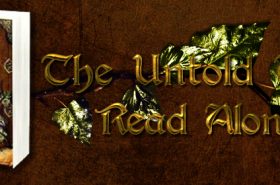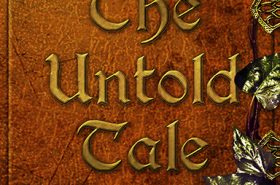We’re only two posts away from completing our trek through literary subgenres. Excited? I am. I think my brain’s about to overload from all this information.
This week, it’s Mystery’s turn. Mysteries are literary puzzles, challenging the reader to unravel the story and put all the pieces in place before the big reveal. They rely heavily on suspense and foreshadowing, carefully withholding pertinent information about the antagonist’s motivation, and even identity, until the very end. When done well, the clues are so subtle the reader only fully understands in a glorious “Oh! Now I get it!” burst of clarity once everything’s been revealed. These narratives are twisty, brilliantly convoluted, and written to keep you on your toes. Which is why they’re one of my favorite genres, both as a reader and an editor.
But just like every genre, Mystery is broken into subcategories — 20 to be exact. You know what happens next.
Detective
I’m pretty sure there’s one prominent name that comes to mind for this subgenre — Sherlock Holmes. Yep, Sir Arthur Conan Doyle’s famously eccentric sleuth is a prime example of this Mystery staple. But he’s certainly not alone. Detective stories can feature professional private investigators, as in David Baldacci’s Sean King and Michelle Maxwell books, or they can be amateurs, like Jessica Fletcher in Murder, She Wrote. The point is that each book follows an investigation from the POV of the detective, creating a kind of follow-along for readers as they try to, ideally, solve the crime first. Detectives with winning personalities, such as Mr. Holmes, are prime candidates for long-running series, making the central character as important to this subgenre as the mysterious crimes themselves.
Child/Woman in Peril
These stories typically feature kidnappings; the mystery lies not only in why the victim has been taken, but whether or not they will be saved. High intensity and heavy on action, this is a favored storyline for film as well as literature. Most recent examples include Taken, starring Liam Neeson, as well as ABC’s failed show, Zero Hour (although there was a lot more to that than just the kidnapping). Agatha Christie’s Murder on the Orient Express also falls under this heading.
Classic Whodunit
(You can’t have Mystery without a Whodunit reference.)
These also usually feature a professional investigator, but they’re different from Detective stories because the situation is more prominent than the characters. Think more like Clue, where the crime is the most important element and figuring out the puzzle is the main point. These are usually stand-alone books, where the detective just conveniently happens to be included, rather than character-driven series like Detective fiction.
The best example of this subgenre is Agatha Christie’s And Then There Was None.
Comic (Bumbling Detective)
Fusing Humor with Mystery, these are light-hearted tales meant to elicit laughs. Often, they feature a detective who is less-than-qualified but who still manages to fumble their way into solving the crime. Examples include Inspector Clouseau from The Pink Panther, as well as USA’s former hit, Monk. Those are extreme examples though. Really, it can be any Mystery that puts emphasis on the humorous elements, diffusing what can sometimes be rather dark material with laughter. A & E’s recently cancelled show, The Glades, would fit here with its wise-cracking lead character, as does ABC’s Castle.
Cozy
Cozy mysteries occur in small towns or even single homes. The characters, except the detective, who’s conveniently an outsider, all know each other and the tension is laced with the possibility of betrayal. Though primarily Horror, since it’s based on the work of Stephen King, I would categorize CBS’s Under the Dome here as well. It contains many of the required elements — a small town trapped under a mysterious dome, with one convenient outsider trying to understand the many layers of intrigue. But technically, Murder, She Wrote is a better known example. (What? It can fall into more than one category.)
Legal Thriller
Legal Thrillers are similar to Detective, but feature lawyers instead of investigators. They takes place entirely in the legal system, whether that be an attorney trying to convict/acquit a client, unraveling the clues of the case as they go, or simply set against a backdrop of law-wielding firms. John Grisham’s famous novel, The Firm, is a prime example.
Dark Thriller
This one has a slightly misleading name. It’s actually a combination of Horror and Mystery, pulling the fear and graphic violence from Horror and mixing it up with the suspenseful puzzles of Mystery. Sharp Objects by Gillian Flynn is an example of this kind of story.
Espionage
More commonly thought of as Thrillers, Espionage books are actually part of Mystery (because technically Thriller is part of Mystery). These titles revolve around the international spy game, as blatantly referenced by the subgenre’s name. The most recent resurgence of this category features spies facing off against terrorists, racing to find and stop planned attacks and tracking down leaders hiding in the shadows. They’re exciting in the way only spy stories can be. (Who doesn’t love to say stuff like, “Bond. James Bond”?) Espionage lets readers step into a glamorous (and fictional) life of adventure and subterfuge, making the focus of these plotlines plain ole action.
Forensic
Like most of the Mystery subgenres, Forensic once again revolves around solving crimes, this time through the highly detailed and scientific lens of the forensics lab. Popularized by shows like Bones and CSI, this subgenre is dominated by a small niche of authors — Kathy Reichs (the real-life inspiration behind Bones), Patricia Cornwell and Tess Gerritsen (behind TNT’s popular hit, Rizzoli & Isles) are just a few.
Heists & Capers
Who doesn’t love a good heist? Face it, there’s something inherently appealing about the elaborate schemes to steal priceless items, the thrill of the con, and the ever-present question of “can they really pull this off?” This subgenre glorifies the “anti-hero,” meaning that it’s told from the criminal or “bad guy’s” POV. The rules of the category actually say that the criminals aren’t supposed to win, that their plans are foiled at the last minute and everything goes wrong, but more recent variations like Ocean’s Eleven and TNT’s now-deceased show, Leverage, give the audience a different end — a criminal’s happy ever after, as it were.
Historical
See? Here it is again! I’m telling you, Historical should become its own genre.
Anyway, just like all the other variations, a Historical Mystery is set against a recognizable period of time and may or may not include famous historical personas. Fascinatingly enough, this particular subcategory of Historical features a niche market of Chinese Mysteries (stories set in ancient China and Japan) as well as the standard Elizabethan, etc. The Sano Ichiro series by Laura Joh Rowland is a great example.
Inverted
This could almost be described as an omniscient mystery, wherein the reader witnesses the murder up front, knowing full well who the killer is, and the suspense is created around figuring out “how” they will be caught. So the reader knows more than the detective and watches from the sidelines while they struggle to figure it out. The most fantastic use of this technique I’ve encountered is actually in ABC’s most recent drama, Motive, but the subgenre has been around since 1912.
Locked Room
If you’re like me, then you instantly thought of panic rooms. But, like me, you’d be wrong. Locked Room is a strange niche of a subgenre that seems to have fallen out of favor. The idea is that the central crime is committed under seemingly impossible circumstances but is later explained rationally. The most notable example is Edgar Allan Poe’s short story, The Murders in the Rue Morgue, which apparently spawned the whole thing.
Medical
From unknown viral epidemics to the diagnostic marvels seen in Fox’s House, Medical mysteries are pretty straight-forward. Obviously, they contain something medical that, for whatever reason, is unexplained. Figure out what the disease is, where it came from, or how to cure/stop it, and the story’s over. It’s as easy as that.
Police Procedural
Ah, yes, everyone’s favorite Mystery subgenre. Without it, we wouldn’t have such iconic shows as Law and Order, (all 15 versions of it), or half of TV’s current offerings. Police Procedural is such a well-known category, I almost feel like it’s a waste for me to define it. But just in case you’ve somehow managed to avoid exposure to this type of story, here’s the deal:
It features police detectives (with their assorted teams of bad-ass forensics people) unraveling often brutal crimes and eventually catching the perps.
See? Didn’t I just describe about 80% of prime-time, scripted TV?
Psychological Suspense
I think I missed my calling as a psychologist, because once again, these stories fascinate me. Most of the other subgenres focus on who committed the crime, or how, but Psychological Suspense focuses on why. It explores the dark and twisty pathways of the human psyche and the motivation behind a crime. Also called Psychological Thrillers, the story rides not on an external threat, but on an internal one, focusing on the character’s emotional state, mental abilities or instability. TNT’s current hit (and one of my favorite shows), Perception, would fit nicely under this header.
Romantic
Another cross-breed, Romantic mysteries combine, you guessed it — Romance and Mystery. A relatively new subgenre, Romantic features strong, compassionate heriones prone to falling in love with their crime-solving partners. But while the romance is a strong element in these tales, it takes a backseat to the puzzle, making this melding of genres a different one for Romance. Usually, when Romance is involved, it’s the dominating story arc, but here, it plays second fiddle to the standard plotlines of Mystery.
TechnoThriller
This subgenre has two requirements:
- A high level of action
- Heavy emphasis on technology
Scientific detail is imperative in these and often plays a crucial role in the plot’s progression. Espionage, conspiracy theories and military action are also cornerstones of this category, with quite a few heavy-hitting names gracing the lists: Michael Crichton, Tom Clancy and Dan Brown (for his work prior to The Da Vinci Code) are some you may have heard of.
Thriller
This is such a broad category that some consider it a genre unto itself. But technically, it does fall under the parameters of Mystery. Thrillers deal with pretty much every topic under the sun. The criteria, therefore, has less to do with certain plotlines or characters and more to do with the storytelling techniques themselves.
Thrillers use suspense, tension and excitement to create adrenaline-inducing thrill rides that are action-packed and gripping. Red herrings, plot twists and cliff-hangers run rampant through this subgenre, making them some of the most exciting tales on the market. It also makes them prime fodder for Hollywood to cherry pick, as they are an almost sure hit with audiences.
Woman in Jeopardy
Similar to Child/Woman in Peril, this also focuses on a damsel in distress. The difference is that, here, she’s also the heroine. So instead of having to be rescued like in a Child/Woman in Peril, Woman in Jeopardy focuses on the protagonist’s ability to outwit, outmaneuver and ultimately escape from her dangerous adversary. Lisa Jackson and Heather Graham, though both technically considered Romance authors, tend to write stories that qualify for this category as well.
And there you have it — a breakdown of the various mysteries of Mystery. As you can see, this genre plays a dominant role in many mediums. We’re surrounded by it on a daily basis, to the point that it almost becomes synonymous with storytelling. Humans are curious creatures, and Mystery plays right into that, capturing our attention in ways the other genres don’t. I mean, don’t get me wrong, we all know I’m a Fantasy girl at heart. But I can’t deny that Fantasy allows more of a passive approach to enjoyment, while Mystery makes your brain work for it. If you want to be a couch-potato, soaking your entertainment in from the sidelines, Mystery’s definitely not the genre you should go to.
Next week will be the grand finale to this post series; the epic conclusion to our journey — the behemoth that is Science Fiction. Better polish up those reading glasses, it’s going to be a long one. Don’t say I didn’t warn you! 😉
**Another post brought to you by Senior Editor Kisa Whipkey’s personal blog, Nightwolf’s Corner.**



